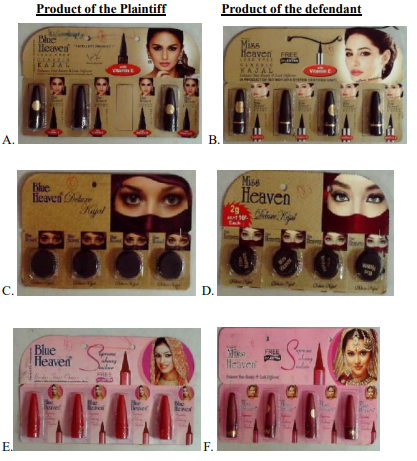Ruston & Hornsby Ltd. Vs. The Zamindara Engineering Co.
Ruston & Hornsby Ltd. Vs. The Zamindara Engineering Co.
Appellant carried business of manufacturing and sale of diesel internal combustion engines. Ruston Hornsby (India) Ltd., was a subsidiary of the Appellant. The Respondent was a firm carrying on business in the manufacture and sale of diesel internal combustion engines. The appellant was a registered proprietor of the trade mark Ruston.
The appellant came to learn that the Respondent was manufacturing and selling diesel internal combustion engines under the trade mark “RUSTAM”.
Appellant instituted a suit for permanent injunction seeking restrain on the respondent from infringing the trade mark “RUSTON”. District Judge, Meerut, dismissed the suit holding that there was no visual or phonetic similarity between “RUSTON” and “RUSTAM”.
In appeal, the High Court of Allahabad held that the use of the words “RUSTAM INDIA” was not an infringement because the Appellant’s engines were made in England and the Respondent’s engines were made in India. The suffix “INDIA” was sufficient warning that the engine sold was not a “RUSTON” engine manufactured in England and the respondent may be permitted to use the combination “RUSTAM INDIA”.
The Supreme Court of India reversed the judgement of the High Court by observing:
“The distinction between an infringement action and a passing off action is important. Apart from the question as to the nature of trade mark the issue in an infringement action is quite different from the issue in a passing off action. In a passing off action the issue is as follows :
Is the defendant selling goods so marked as to be designed or calculated to lead purchasers to believe that they are the Plaintiff’s goods ?
But in an infringement action the issue is as follows :
Is the defendant using a mark which is the same as or which is a colourable limitation of the plaintiff’s registered trade mark ?
It very often happens that although the defendant is not using the trade mark of the plaintiff, the get up of the defendant’s goods may be so much like the plaintiff’s that a clear case of passing off would be proved. It is on the contrary conceivable that although the defendant may be using the plaintiff’s mark the get up of the defendant’s goods may be so different from the get up of the plaintiffs goods and the prices also may be so different that there would be no probability of deception of the public. Nevertheless, in an action on the trade mark, that is to say, in an infringement action, an injunction would issue as soon as it is proved that the-defendant is improperly using the plaintiff’s mark.”
The Supreme Court held “If the respondent’s trade mark is deceptively similar o that of the appellant the fact that the word ‘INDIA’ is added to the respondent’s trade mark is of no consequence and the appellant is entitled to succeed in its action for infringement of its trade mark.”



